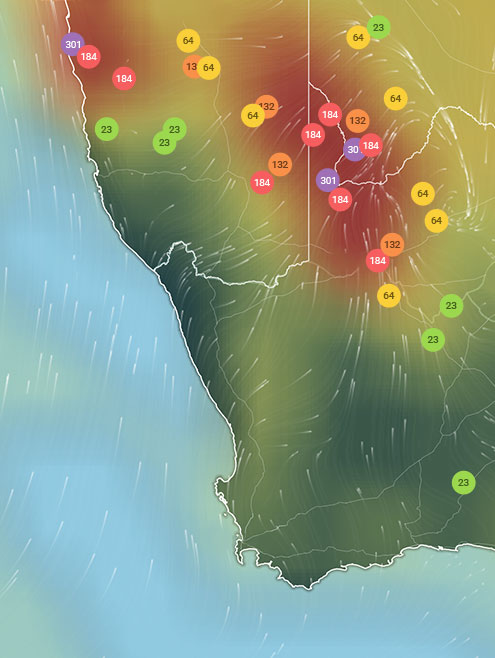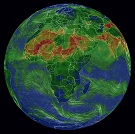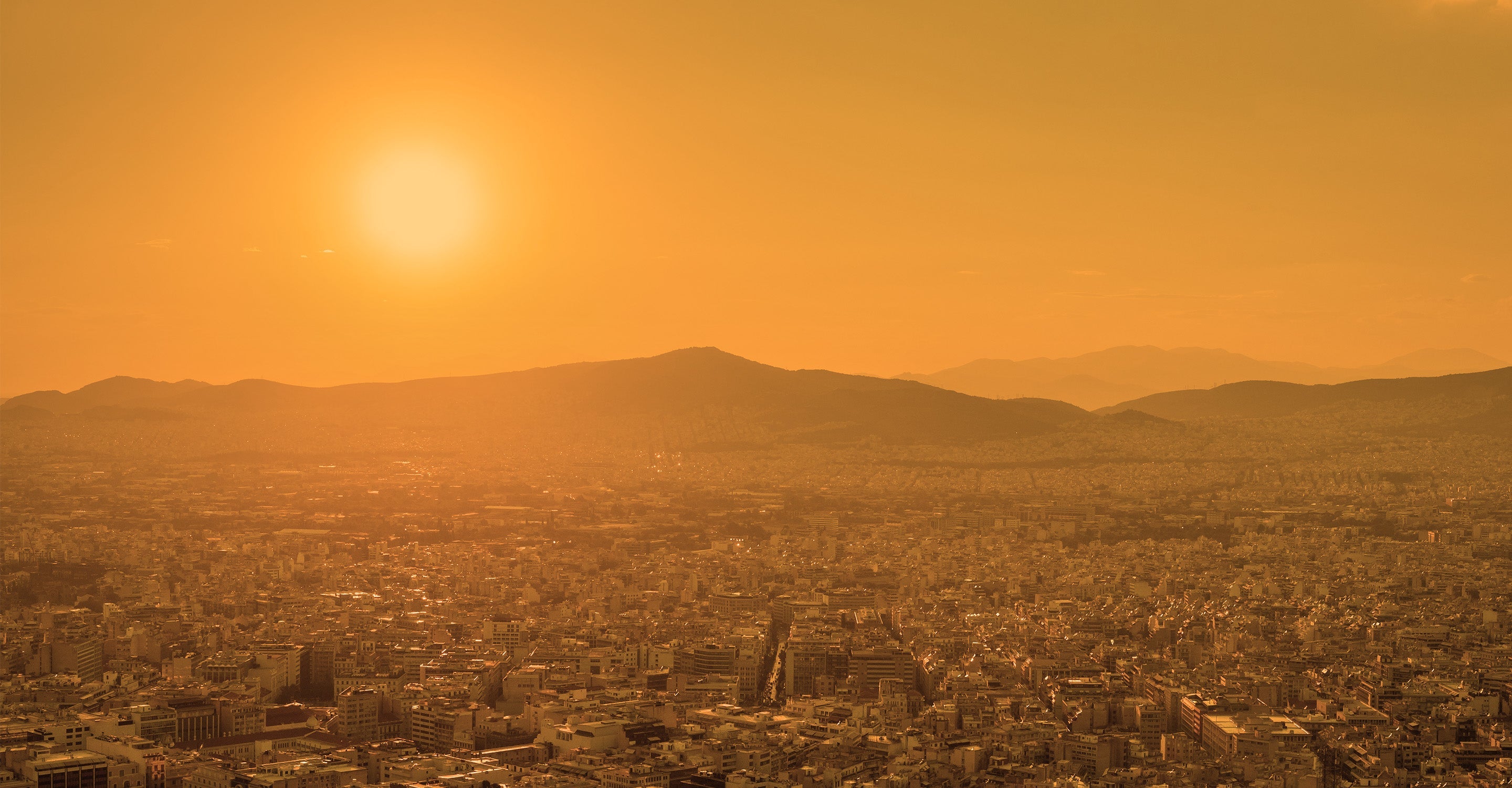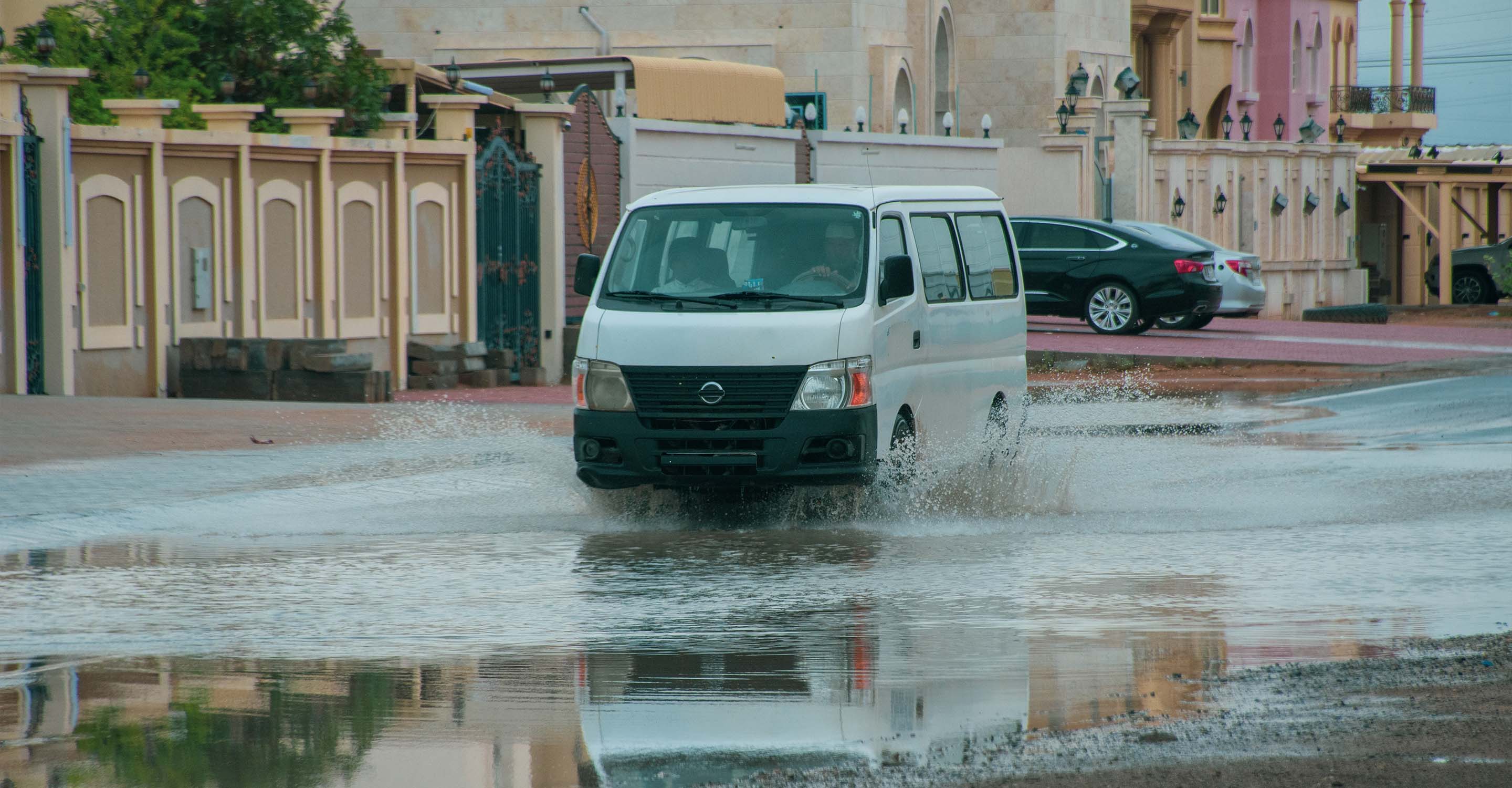Air quality in Hebi
Air quality index (AQI) and PM2.5 air pollution in Hebi
980 people follow this city

Hebi Air Quality Map
Real-time Hebi air pollution map
Weather
What is the current weather in Hebi?
| Weather | Broken clouds |
| Temperature | 62.6°F |
| Humidity | 64% |
| Wind | 7.3 mp/h |
| Pressure | 29.7 Hg |
live aqi city ranking
Real-time China city ranking
| # | city | US AQI |
|---|---|---|
| 1 | Jiayuguan, Gansu | 1109 |
| 2 | Jining, Inner Mongolia | 422 |
| 3 | Hohhot, Inner Mongolia | 263 |
| 4 | Ulanqab, Inner Mongolia | 200 |
| 5 | Zigong, Sichuan | 189 |
| 6 | Bayan Nur, Inner Mongolia | 182 |
| 7 | Leshan, Sichuan | 181 |
| 8 | Langfang, Hebei | 172 |
| 9 | Tongzhou, Beijing | 172 |
| 10 | Fangshan, Beijing | 170 |
(local time)
SEE WORLD AQI RANKING3D animated air pollution map

live Hebi aqi ranking
Real-time Hebi air quality ranking
| # | station | US AQI |
|---|---|---|
| 1 | Ying hotel | 151 |
| 2 | City Traffic Police Detachment | 146 |
| 3 | Daxin District | 129 |
| 4 | City monitoring station | 127 |
(local time)
SEE WORLD AQI RANKINGUS AQI
138
live AQI index
Unhealthy for sensitive groups
Overview
What is the current air quality in Hebi?
| Air pollution level | Air quality index | Main pollutant |
|---|---|---|
| Unhealthy for sensitive groups | 138 US AQI | PM2.5 |
| Pollutants | Concentration | |
|---|---|---|
| PM2.5 | 50.5µg/m³ | |
| PM10 | 86.5µg/m³ | |
| O3 | 66.5µg/m³ | |
| NO2 | 23.5µg/m³ | |
| SO2 | 13.5µg/m³ | |
| CO | 500µg/m³ | |
PM2.5
x10.1
PM2.5 concentration in Hebi is currently 10.1 times the WHO annual air quality guideline value
Health Recommendations
What is the current air quality in Hebi?
| Reduce outdoor exercise | |
| Close your windows to avoid dirty outdoor air GET A MONITOR | |
| Sensitive groups should wear a mask outdoors GET A MASK | |
| Run an air purifier GET AN AIR PURIFIER |
Forecast
Hebi air quality index (AQI) forecast
| Day | Pollution level | Weather | Temperature | Wind |
|---|---|---|---|---|
| Wednesday, Apr 24 | Unhealthy for sensitive groups 120 AQI US | 84.2° 53.6° | ||
| Thursday, Apr 25 | Unhealthy for sensitive groups 130 AQI US | 89.6° 59° | ||
| Friday, Apr 26 | Unhealthy for sensitive groups 117 AQI US | 91.4° 60.8° | ||
| Today | Unhealthy for sensitive groups 138 AQI US | 91.4° 60.8° | ||
| Sunday, Apr 28 | Unhealthy for sensitive groups 105 AQI US | 87.8° 62.6° | ||
| Monday, Apr 29 | Unhealthy for sensitive groups 109 AQI US | 82.4° 59° | ||
| Tuesday, Apr 30 | Unhealthy for sensitive groups 120 AQI US | 80.6° 57.2° | ||
| Wednesday, May 1 | Moderate 80 AQI US | 73.4° 57.2° | ||
| Thursday, May 2 | Moderate 65 AQI US | 78.8° 53.6° | ||
| Friday, May 3 | Moderate 65 AQI US | 80.6° 57.2° | ||
| Saturday, May 4 | Moderate 78 AQI US | 82.4° 57.2° |
Interested in hourly forecast? Get the app
AIR QUALITY ANALYSIS AND STATISTICS FOR Hebi
What are the pollution levels in Hebi?
Hebi is a city located in the northern region of Henan province, a landlocked area in the center of China. It has the mountain range of the Shanxi plateau adjacent to it, a feature that can aid in the buildup of air pollution, as is common in many cities throughout the world that are both landlocked and have geographical features that often prevent winds from adequately clearing polluted air out of the city.
In late April of 2021, Hebi was seen with a US AQI reading of 93, placing it in the ‘moderate’ ratings bracket for that particular day. Whilst this is not overtly terrible for air quality, it can be seen that in several days previously recorded, massive spikes in pollution readings were seen, with US AQI numbers going as high as 1102 in late March. This is a huge reading rarely seen on record in many other polluted cities, and as such indicates that Hebi is subject to some serious pollutive issues that need addressing, with the health of its citizens being at extreme risk for adverse effects, with multiple ailments of the cardiac and pulmonary variety presenting themselves under such conditions, as well as many other severe health issues.
Of note is that Hebi’s readings appear to be extremely sporadic, with readings going down as low as 72 on the US AQI reading chart, and as high as the aforementioned spike of 1102. Preventative measures and staying up to date on air quality levels via the use of air quality maps available on this page and the AirVisual app can aid greatly in determining whether outdoor activity is safe, and if no alternatives are available, measures such as the wearing of fine particle filtering masks are highly advised.
Over the course of 2020, Hebi was seen with a PM2.5 reading of 58.9 μg/m³ as its yearly average, a high reading that placed it into the ‘unhealthy’ air quality bracket, which requires a PM2.5 reading of anywhere between 55.5 to 150.4 μg/m³ to be classified as such. Although Hebi’s reading came in on the lower end of the unhealthy ratings bracket, it still indicates that much of 2020 saw less than appreciable levels of air quality, and as the name indicates, would once again be at great detriment to the health of citizens. This reading of 58.9 μg/m³ placed Hebi in 6th place out of all cities ranked in China in 2020, as well 49th place out of all cities ranked worldwide, showing that there is much that Hebi could do to improve the situation with its air quality levels.
What are the causes of high pollution levels in Hebi?
Hebi has many different offending sources of pollution, which include ones such as fossil fuel processing plants, power stations, local businesses (which were found on many occasions to be exceeding safe levels of emissions), the burning of organic material such as wood and charcoal in homes, as well as vehicular fumes and emissions, and the myriad of other production factories and facilities located across the city, all of which come together to form the extremely high readings of air pollution seen on record. As well as this, adverse meteorological conditions, particularly in the early and late portion of the year, can compound the situation further, causing these already high pollution levels to spike even further.
Cars and other motors such as freight vehicles (heavy duty ones such as lorries and trucks) can put out large amounts of pollution, some of which will be discussed later in the article. With these larger vehicles often utilizing diesel fuel, the exhaust fumes can contain many more polluting agents and fine particulate matter (PM2.5 and PM10) than cleaner alternatives would, with other factors such as the wear and tear of tire treads putting out thousands of tons of microscopic rubber particles into the air, which can have a disastrous effect on both human health when inhaled, as well as the environment and various ecosystems.
These are some of the main sources of pollution in Hebi, with others such as construction sites, road repairs and demolition areas all contributing to other dangerous contaminants as well as massive release of both fine (PM2.5) and coarse (PM10) particles, which also present numerous health risks when inhaled.
When is the air at its most polluted in Hebi?
Observing the data taken over the course of 2020 as a strong indicator as to when the PM2.5 levels were at their highest, it can be seen that the months of January and February, as well as October through to December were when the pollution levels were at their highest, as was touched upon earlier in the article. This indicates that pollution levels would start to rise towards years end, with September through to October showing a massive shift in its PM2.5 reading, going from 33.2 μg/m³ all the way up to 65.1 μg/m³ in just a single month (and then further up to 78.6 μg/m³ and 95.6 μg/m³ in the last two months of the year).
The most polluted month of the year was recorded in January, with an extremely high reading of 136.5 μg/m³, placing it within the upper echelons of the ‘unhealthy’ ratings bracket, indicating a time period in which the air would be at its most permeated with haze, smoke, dangerous particles and other noxious chemical pollutants.
Does Hebi have good quality air during the year?
In opposition to the previous question, whilst there were some extremely high readings of air pollution present over the course of 2020, there were a few months in which the air quality level dropped to more appreciable readings, relatively speaking.
The months of may through to September were the cleanest of the year, all of which came in within the ‘moderate’ rated pollution bracket, which requires a PM2.5 reading of 12.1 to 35.4 μg/m³ to be classified as such. The cleanest month of the entire year was August, which came in with a PM2.5 reading of 26.7 μg/m³.
What pollution can be found in the air in Hebi?
Some of the main pollutants that would be found in the air in Hebi throughout the year would be ones such as nitrogen dioxide (NO2), sulfur dioxide (SO2), carbon monoxide (CO), ozone (O3), as well as a variety of hazardous particulate matter (within the PM2.5 and PM10 brackets), such as finely ground gravel, silica dust, rubber particles, and black carbon, the main component of soot and a highly carcinogenic material. Black carbon finds its creation from the combustion of both fossil fuels as well as organic matter. These are some of the main pollutants that one would find in the air in Hebi, with many more being present in certain areas throughout the city, particularly near industrial areas such as the aforementioned power plants and factories.





